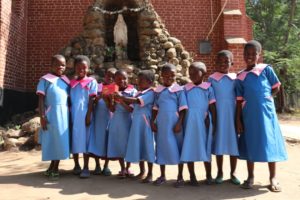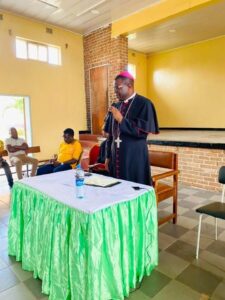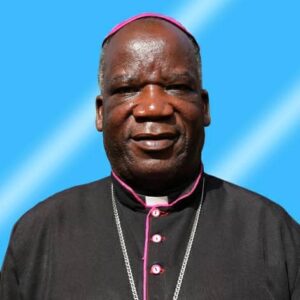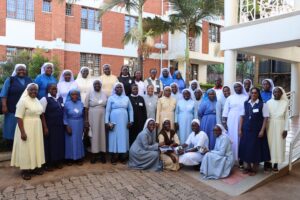MALAWI: The Plight of Children with Hearing Impairment at Mua School for the Deaf

Learners at Mua making Rosaries
Demetria Banda
Government’s decision to take on Mua School for the Deaf in (year) was remarkable. It simply showed its effort in providing equal education for children in the country including those with all kinds of disabilities.
The Catholic Church in Malawi must be congratulated for all the visible education structures across the country founded for children with hearing and speech impairment for that is what we need; patriotic, development-oriented faith-based organizations. We also recognize the missionaries in Dedza Diocese who in 1984 saw it pertinent to build the structure and provide the same opportunity for these deserving children at Mua School for the Deaf.
In obvious circumstances, it is perhaps challenging for the government to start from the scratch, beginning with the provision of relevant structures for children with special needs for them to access education services. The faith-based initiative saved government from the trouble of building the same.
Today at Mua, the children with hearing and speech impairment learn how to read and write, sign language and other technical skills such as needlecraft, tailoring, carpentry and making rosaries. This is intended to equip them with skills they need to find their place in the society.
Despite that teachers’ salaries at the school are government-funded, there is no direct provision for assistant teachers and other supporting staff whose salaries have previously been sourced in disorganized fashion from the general overhead budget.
The government also contributes to running costs which are normally provided at irregularly, and often many months late. This means the school stumbles from financial crisis to financial crisis and all too often the children go hungry.
The head teacher for Mua School for the Deaf Henry Andrew Chiwaya made an appeal to the government of Malawi to consider increasing the funding and also pay the money in time, monthly.

Government is supposed to provide approximately USD $800. (MWK 600,000.00) every month for buying food for the children; for paying the supporting staff such as the watchmen, the cooks and the nuns who take care of the children; for paying utility bills and other running costs and minor maintenance.
Little as it the sum is, still government subvention is often delayed making such payments once in three months or more, subsequently affecting the meals provision. The students are sometimes sent home before the end of an academic term.
The Catholic nuns too who have dedicated their lives to caring for the children suffer financial malaise as they depend on little allowances from the institution.
Currently the school is lacking a lot of things but more importantly it needs to do maintenance of the hostels and classrooms. Some rooms have roofs that leak when it is raining; the school hardly gets enough money to purchase food for the children as well as for paying water and electricity bills. More importantly they need hearing aids for the learners which are needed for those who have hearing impairment to be able to follow classes.
As much as there is a need for government to intervene, the community at large and people of good will can also contribute to the welfare of these children. Malawi can do better in driving the ‘education for all’ effort.


